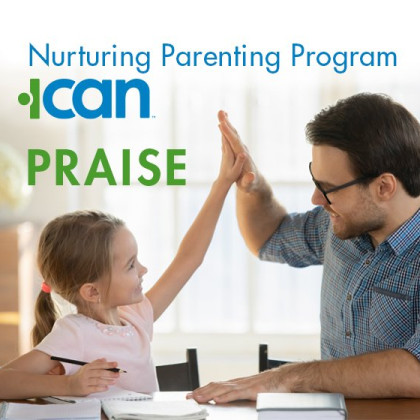Praise - A Great Parenting Practice

Praise is the parenting practice of letting children know they have value as people and their efforts in behaving and following the rules are appreciated. Children who are praised for their behavior, or for their personal qualities, develop a sense of self-worth.
There is a parenting myth that if a child is praised they will become conceited, thinking they are better than others. The fact is, children who are praised develop a strong sense of self and do not need to put themselves above others to feel good about themselves. They already do.
Think of praise like fuel that powers your child’s positive self-worth. Children who sincerely believe they have worth treat themselves and other in positive ways.
There are two ways to use praise as a parenting practice: Praise for Being and Praise for Doing.
Praise for Being
Praise for Being is the highest form of praise a child can receive. Praise for Being lets children know you value them for who they are. It is unconditional and given freely at any time. When you praise children for Being, they don’t have to do anything to earn it.
Some examples of Praise for Being are:
“I really love you!”
“You are such a kind person.”
“You are so special.”
Praise for Doing
Praise for Doing lets children know you appreciate their efforts. Praising a child’s behavior can be for something they tried and completed, or tried but didn’t quite succeed or finish. If you acknowledge your children’s efforts, they are most likely to try again.
Some examples of Praise for Doing are:
“What a good job you did cleaning your room.”
“I’m really pleased you tried so hard.”
“You are really doing well in school.”
Sometimes parents use praise incorrectly and unknowingly use Praise for Being and Praise for Doing together in one statement. Combining the two forms of praise can tell children that your love and appreciation for them are based on what they do. This is known as “conditional love.”
Some examples of this are:
“What a great job you did on your report card, you are such a great kid!”
“Thank you are cleaning your room, Daddy loves you.”
Some helpful steps when using praise as a parenting technique are listed below:
1. Focus your attention on the child and the situation – praise deserves your undivided attention
2. Never combine the goodness of a person’s being with their efforts or performance
3. Move in close to your child
4. Make eye contact with your child on your child’s level
5. Gently touch your child – touch is a positive form of communication
6. Praise your child for being OR doing
7. Offer a hug to “seal” the nice words
Remember to pay attention to the behaviors you want, and praise them when they appear!